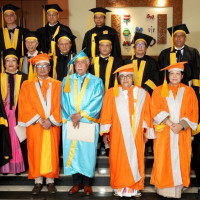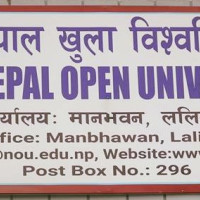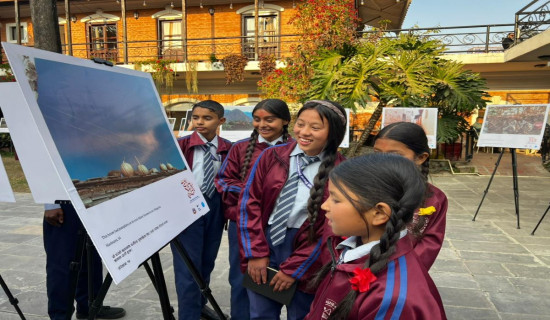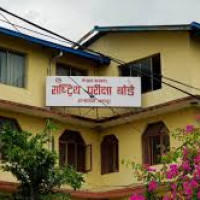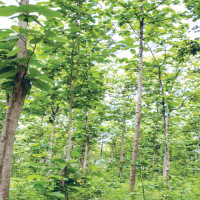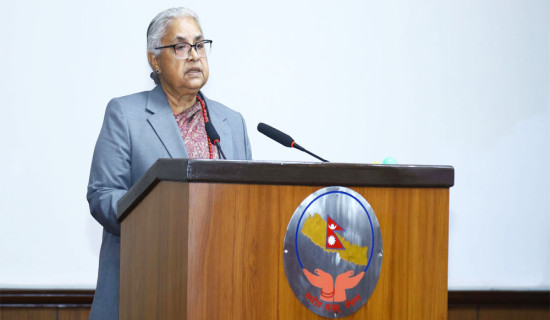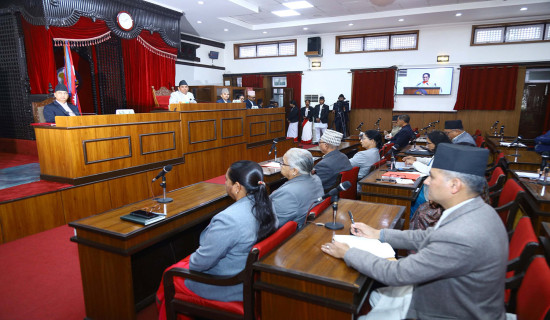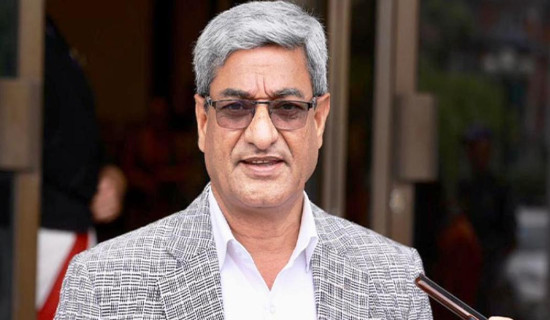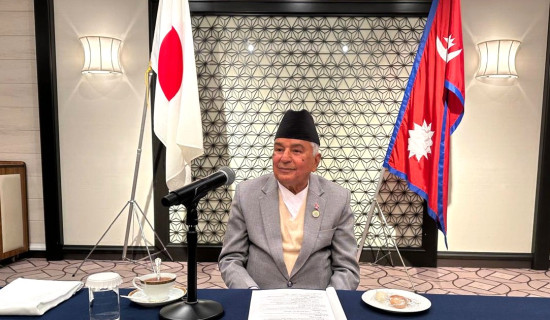- Monday, 2 February 2026
LRI Student Parliament; A State-of-the-Art Platform Unique to Nepal
Kaushal Pant
As part of its commitment to research-based educational excellence, Learning Realm International (LRI) School has introduced the LRI Student Parliament, a pioneering platform in Nepal. LRI School, located in Kathmandu, is a state-of-the-art institution equipped with modern technology and offers students a unique learning experience that mirrors the democratic practices of governance through the Student Parliament.
In today's globalized era, democracy is one of the most widely accepted and practised political systems. Among its three main organs—Legislature, Executive, and Judiciary—the Legislature plays a crucial role in shaping the regulations that govern a nation. In Nepal, the Federal Parliament serves as the supreme body of democracy, with both the National Assembly and the House of Representatives as key legislative bodies.
While the Government of Nepal's secondary education curriculum provides students with a basic understanding of parliamentary processes, LRI School goes a step further. LRI established the LRI Student Parliament, which allows students to engage deeply with the democratic process through hands-on experience. Often referred to as the "brain of the state," the Legislature plays a crucial role in a country's development, much like how the brain directs human functions.
LRI School, which was founded in 1988, operates as a non-profit educational trust serving over 2,700 students from PG to Grade 12. The school remains committed to its mission of nurturing future leaders through a combination of research-based learning, critical thinking, and moral resilience; qualities essential for global citizenship. By integrating best practices from international education systems, LRI prepares its students to face global challenges while fostering an appreciation for local culture and traditions.
The curriculum at LRI is further enhanced by a wide array of co-curricular activities, including the Student Parliament, which offers students the opportunity to engage in policy-making, diplomatic simulations, and leadership exercises. This program aims to shape future leaders, diplomats, and thinkers, preparing students for roles in governance, international organizations, and think tanks. The Student Parliament operates on three core pillars that promote academic excellence, leadership, and civic responsibility. It includes 1,500 students from Grades 6 to 11, divided into 77 groups representing Nepal's districts. Each student, regardless of gender, is a member of this inclusive parliament, fostering equality and inclusivity.
As part of their responsibilities, students prepare detailed research-based district profiles, focusing on sectors such as demographics, education, healthcare, infrastructure, and environmental concerns. These projects provide valuable insights into the socioeconomic landscape of Nepal, while also instilling a strong sense of civic duty in students.
Samriddhi Baskota, a student parliament member from Grade 10, shared her thoughts on the program: “Being part of the LRI Student Parliament has been a great experience. I’ve learned so much about our country’s challenges, especially in the areas of education and healthcare. Engaging in debates and being a part of numerous mock sessions not only helped develop my leadership skills but also deepened my sense of responsibility towards the community.”
Public speaking exercises are also a key component of the Student Parliament, helping students refine their communication skills and boost their confidence. Through careful preparation, creative scripting and persuasive delivery, students are trained to effectively convey their ideas—an essential skill for leaders in today’s interconnected world.
In addition, the Student Parliament also practices real-world parliamentary simulations, allowing students to assume roles in both ruling and opposition parties. Students also participate in prestigious UN mock sessions, where they practice the art of negotiation, debate, and problem-solving on pressing national and global issues. This experiential learning approach equips students with the tools needed to become effective leaders in their future careers, whether in government, diplomacy, or civil society.
LRI School's commitment to social responsibility extends beyond academics. The school engages students in various community initiatives, including tree plantations, public space clean-up campaigns, and traffic awareness programs in partnership with local authorities. Students also participate in food distribution efforts at old age homes, fostering empathy and a sense of social responsibility.
LRI School extends these opportunities to students from other educational institutions as well. The school is eager to collaborate with organizations that share its dedication to holistic education and global citizenship. At LRI, the belief is that students are not just the future of their families, but the future of their nation and the world.
The LRI Student Parliament has been honoured by the presence of distinguished guests during its "Face to Face with Social Change Makers" sessions. These events give students the opportunity to engage directly with influential leaders, and advocates for social change. Through these interactions, students gain invaluable insights into the impact of leadership and governance on society, inspiring them to contribute actively to the global community.
(Pant is the coordinator at LRI Student Parliament)

-(1)-(1).jpg)


